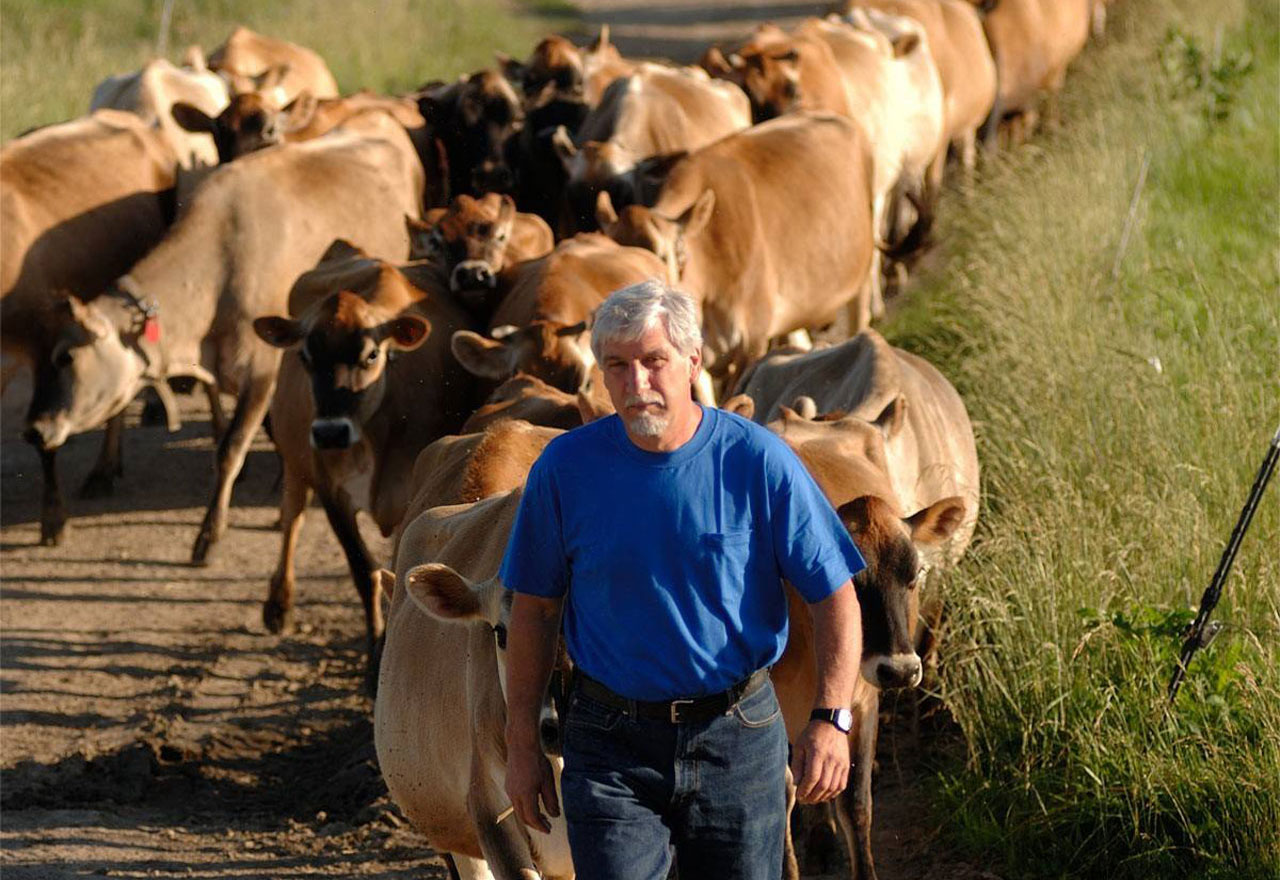Radiance Dairy Redefines Milk
Francis Thicke is used to fielding questions about his products. “Why does your milk have a yellow tinge?” Because the cows are on pasture. “Why do I need to shake your whole milk?” Because it’s creamline milk, which hasn’t been homogenized, meaning the fat molecules are still intact. But the most frequent question eclipses the rest: Where can we find your products? (Read on for that answer.)
In 1995, Francis Thicke and his wife Susan purchased the land that currently houses Radiance Dairy in Fairfield, Iowa. Previously corn and soybean, the Thickes transformed fields into lush pastures that now provide grazing for 90 Jersey cows. Water pumps and electric fences are powered by the sun, and most products are sold within five miles of the farm, which comprises 700 organic acres of pasture, hay, and crops integrated with cover crops.
Visit the farm and you may see the calves running with the herd. At Radiance, heifer calves stay with their mothers for three to four months. (They keep a few bull calves for breeding, and the rest of the bulls go to 4H and local families who raise them for their own use.)
“The cow comes through the milking parlor twice a day, and the calf drinks whatever it wants,” says Francis, a revered innovator in organic dairy. “By the time the calf is three or four months old, it’s drinking all the milk.”
Meaning that milk isn’t sold into the marketplace. That lost income is the reason many dairies separate their calves at birth, feeding them replacement milk or immediately selling them. Allowing for a natural bonding period is important to Radiance’s customers, who place a high value on animal welfare. It’s also smart animal husbandry: keeping calves with their moms improves their health. And, in the case of the few bull calves who stay on the farm, their temperament. “I’ve learned if you let the mother raise the bull calf, it will be a lot gentler,” he says.
Radiance Dairy processes all its dairy at its on-site facility. These days a new product is getting packaged with the Radiance logo: fresh organic mozzarella. Featuring a rich yellow color and made from a traditional Italian overnight method that activates the natural cheese culture and creates the acidity needed to stretch the mozzarella (most processors use the “instant” method that relies on vinegar), the mozzarella is a true value added product. “We think it’s the only organic fresh mozzarella available in the area,” he says.
Another distinction is the dairy’s recent focus on A2 milk. All bulls are tested and must have two copies of the A2 gene in their DNA. Within a few years, the Radiance herd will produce milk that only contains the A2 protein. (Read our story on A2 milk.)
The Radiance Dairy operation is a complex system that hinges on attention to detail and an unwavering commitment to authentic organic dairy production. And the final product — $6/gallon wholesale — is pricey compared to most of the organic milk in the marketplace.
“But frankly,” Thicke say, “this is a different product. We don’t do market research; we simply price our products as much as we need to charge to pay our bills and pay our help.”
And, he says with a laugh, his workers earn more than their boss.
Where to find Radiance products
Radiance Dairy products are available at three grocery stores and about 20 restaurants in Fairfield, Iowa. Recently, Radiance Dairy products have also become available at new Pioneer Food Co-op in Iowa City and Coralville, Iowa, and through the Iowa Food Cooperative, based in Des Moines, Iowa.


